Find Help
More Items From Ergsy search
-
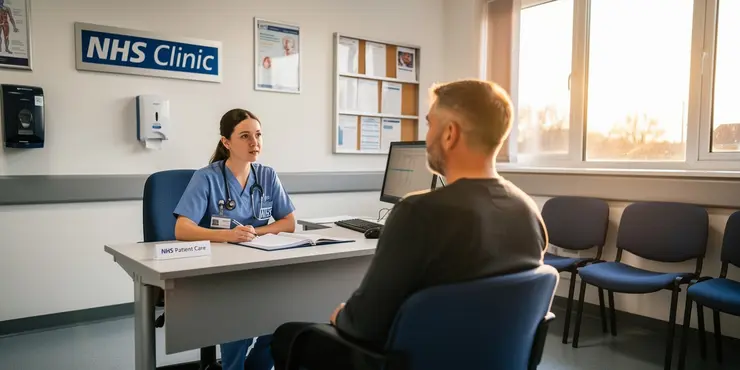
Chronic kidney disease: What are the treatments?
Relevance: 100%
-
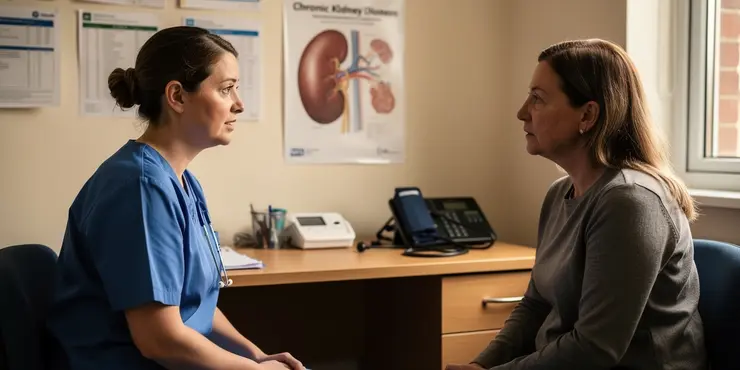
What causes chronic kidney disease?
Relevance: 89%
-

NHSGGC - Diet and Chronic Kidney Disease (CKD)
Relevance: 77%
-
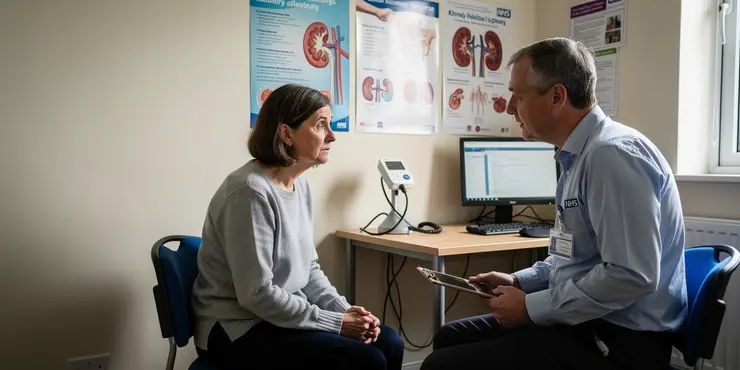
What is my risk of kidney failure with CKD (chronic kidney disease) | UHL NHS Trust
Relevance: 76%
-
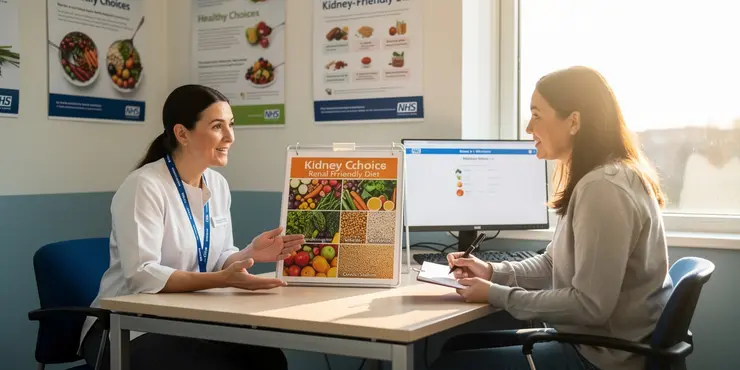
What should I eat to help with chronic kidney disease?
Relevance: 76%
-
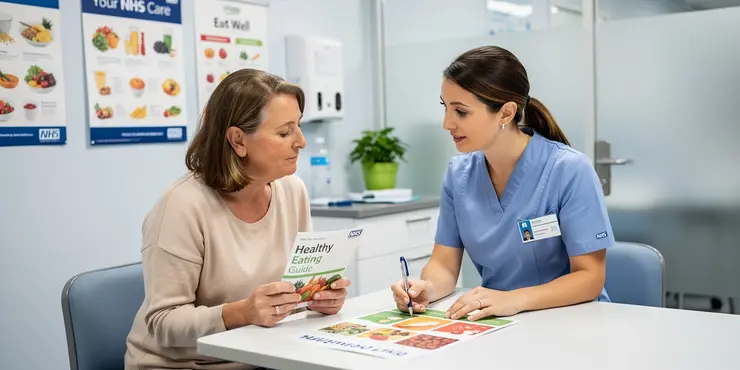
Living with early stage kidney disease
Relevance: 66%
-
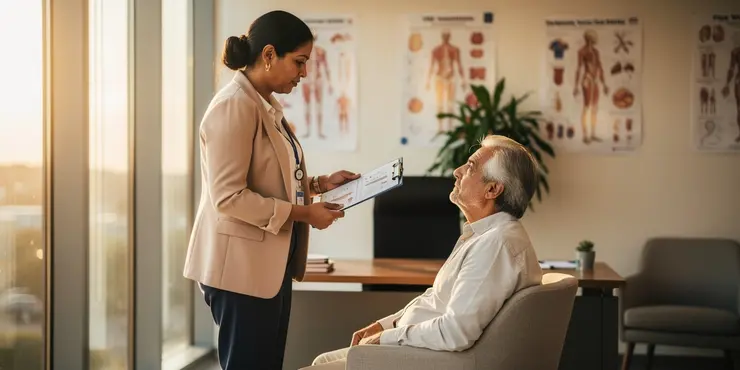
Does Ozempic have an impact on kidney function?
Relevance: 48%
-

Is there a link between seed oils and chronic diseases?
Relevance: 47%
-
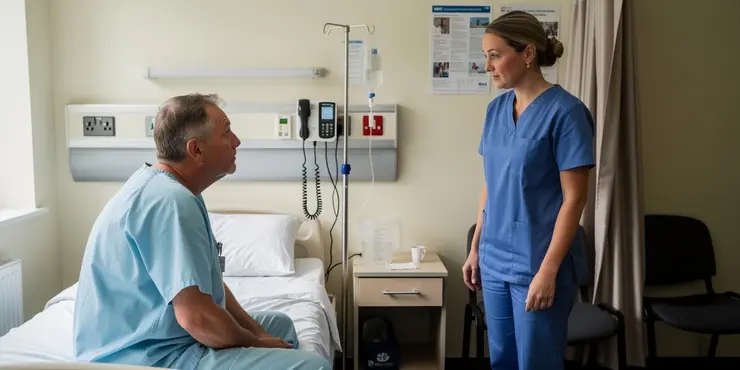
Having a kidney transplant
Relevance: 45%
-
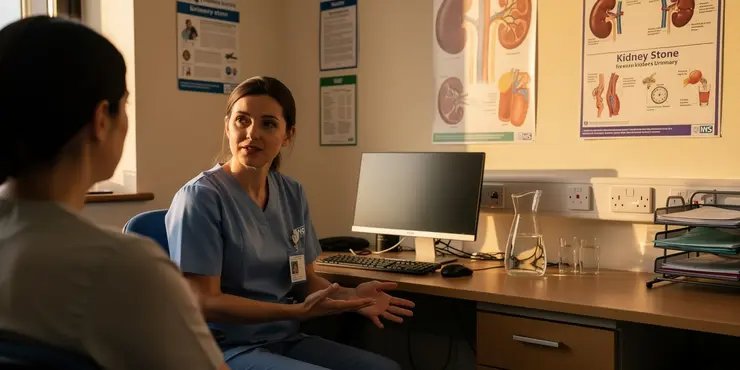
What are kidney stones?
Relevance: 44%
-
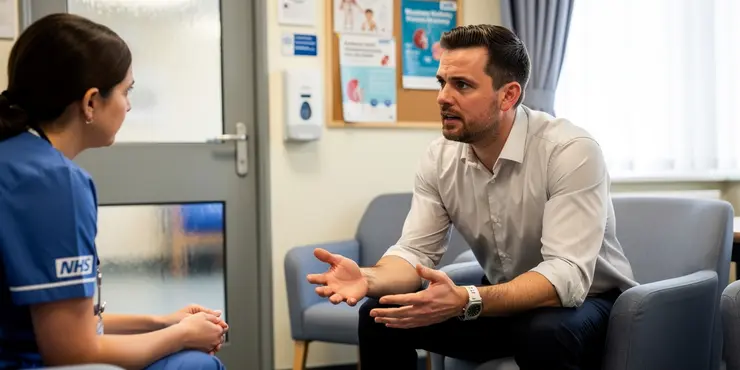
Matthew's Story: Kidney Transplant - Part 1
Relevance: 44%
-
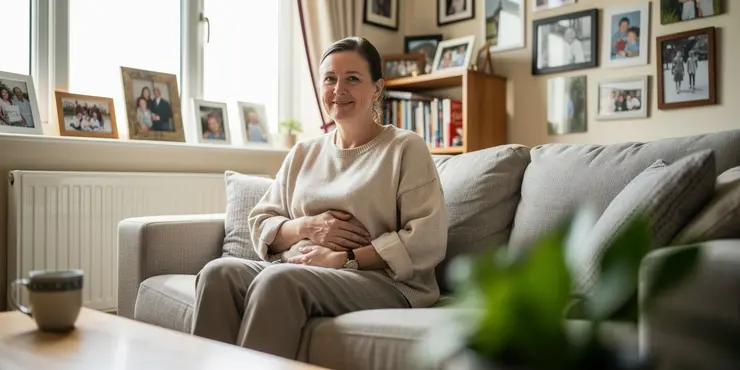
Patient Stories - Having a kidney transplant
Relevance: 43%
-

What treatments are available for Crohn's disease?
Relevance: 43%
-
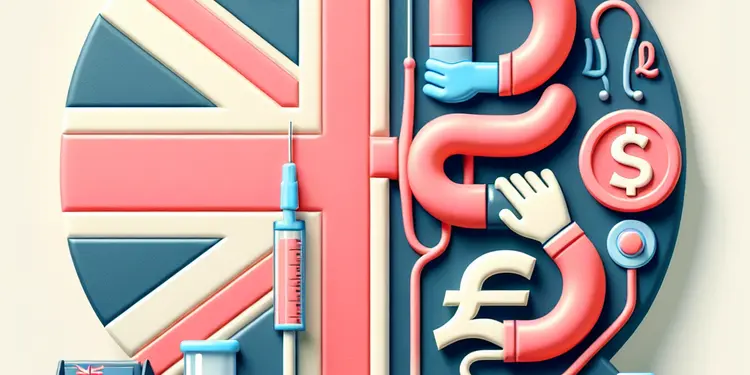
Can flesh-eating disease recur after treatment?
Relevance: 41%
-
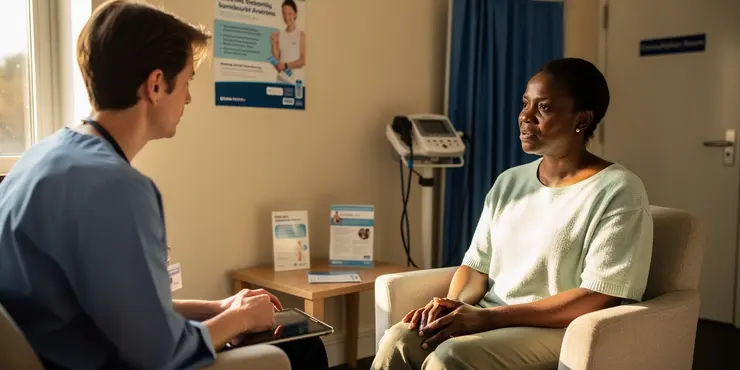
What are the complications of sickle cell disease?
Relevance: 40%
-
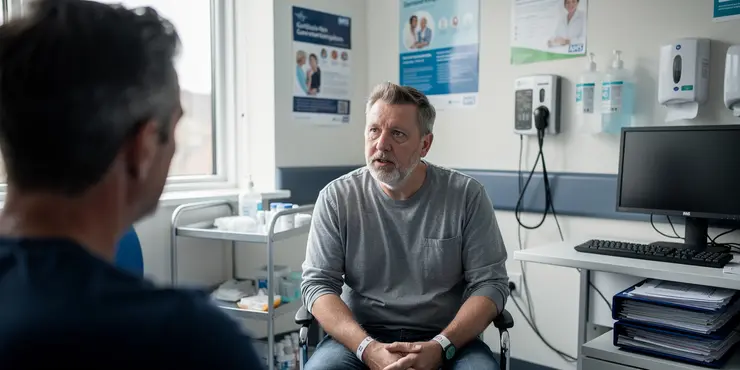
Kidney transplant waiting stories – DJ Ace and Lauren | NHS Organ Donation
Relevance: 39%
-
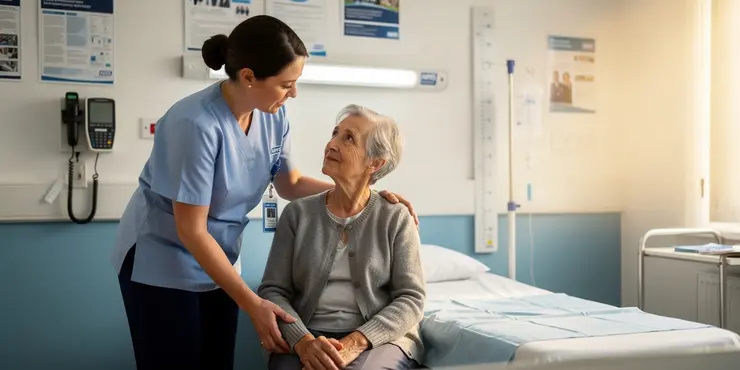
What treatments are available for Alzheimer's disease?
Relevance: 38%
-
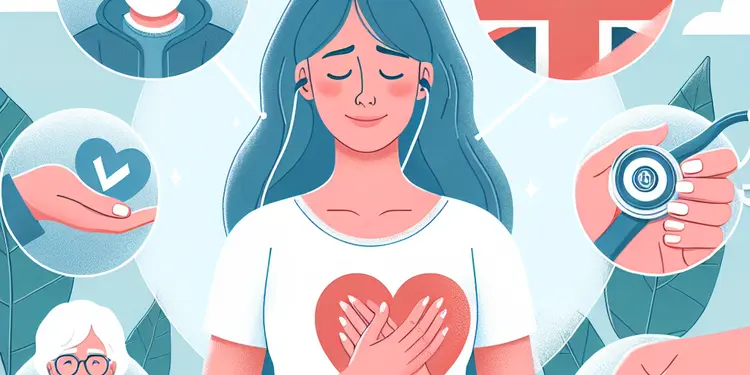
Is chronic fatigue syndrome contagious?
Relevance: 37%
-
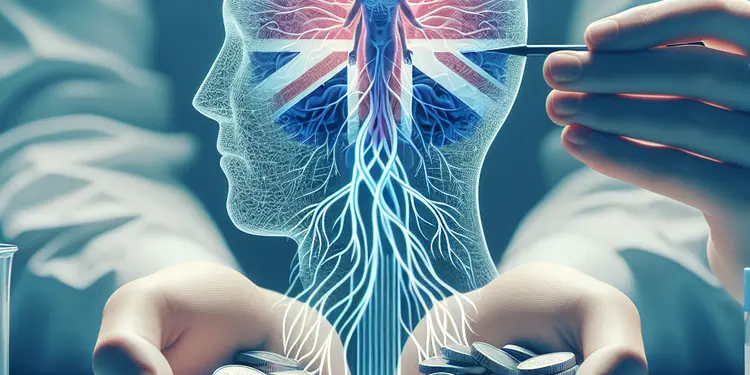
What treatments are available for motor neurone disease?
Relevance: 37%
-

Managing Chronic Illness Within the Family
Relevance: 37%
-
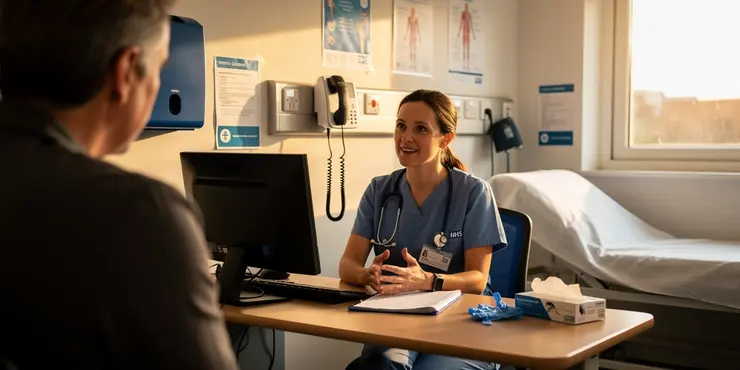
Are there any complications associated with Crohn's disease?
Relevance: 36%
-
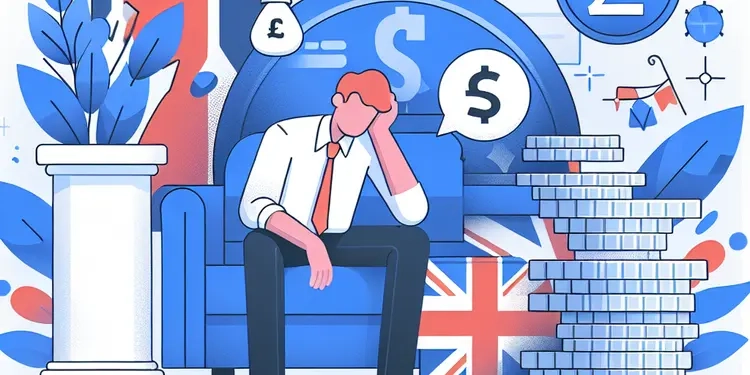
What is chronic fatigue syndrome?
Relevance: 35%
-
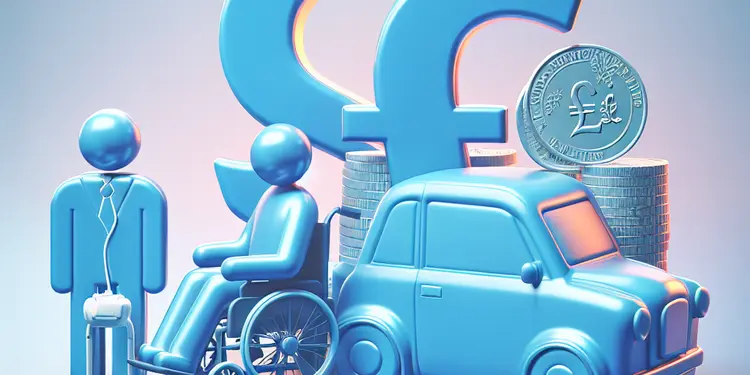
What role do chronic conditions play in driving risks for seniors?
Relevance: 35%
-
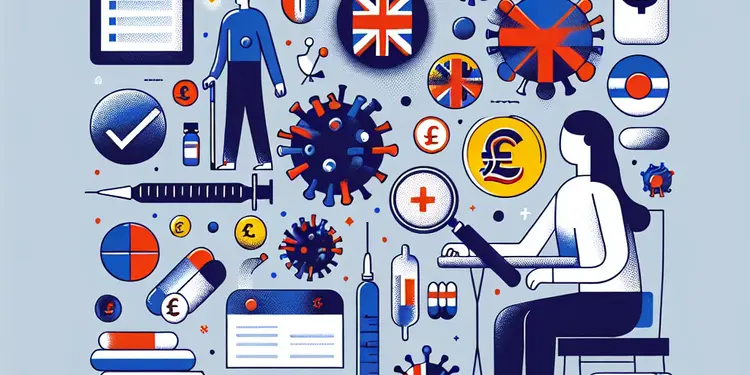
What role do infections play in chronic fatigue syndrome?
Relevance: 34%
-
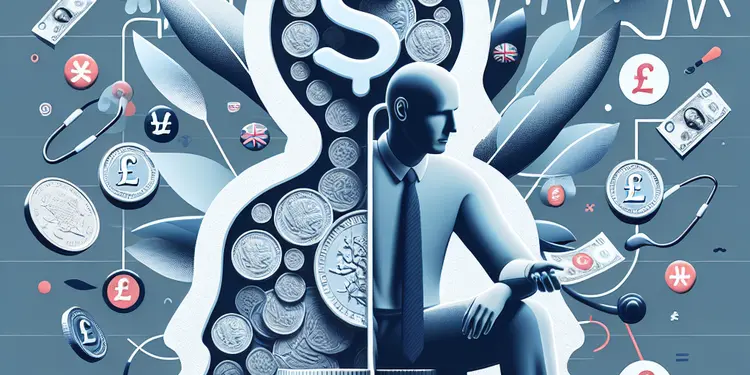
Is chronic fatigue syndrome a mental illness?
Relevance: 34%
-

What causes chronic fatigue syndrome?
Relevance: 34%
-
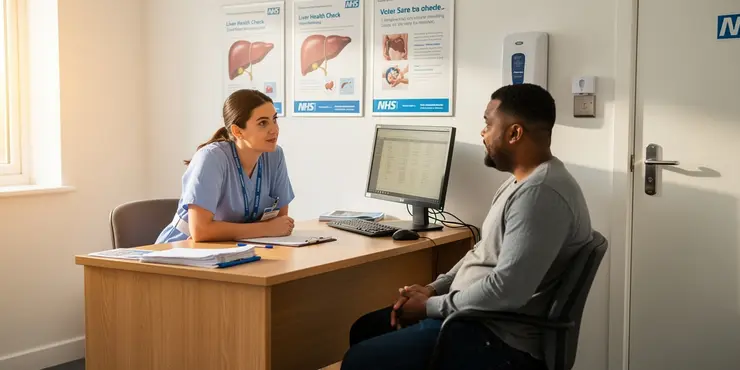
Liver disease | NHS
Relevance: 34%
-
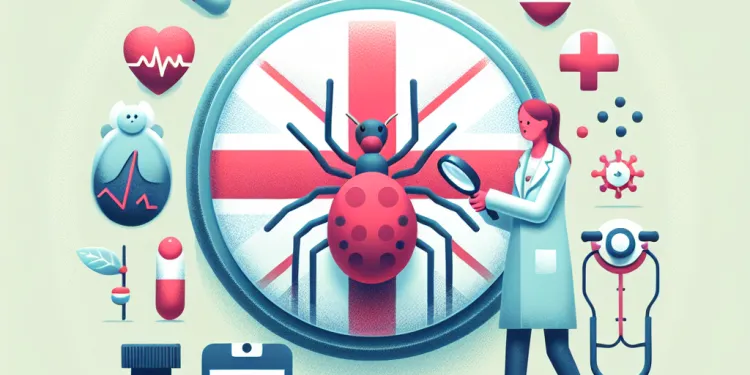
What happens if Lyme disease is left untreated?
Relevance: 34%
-
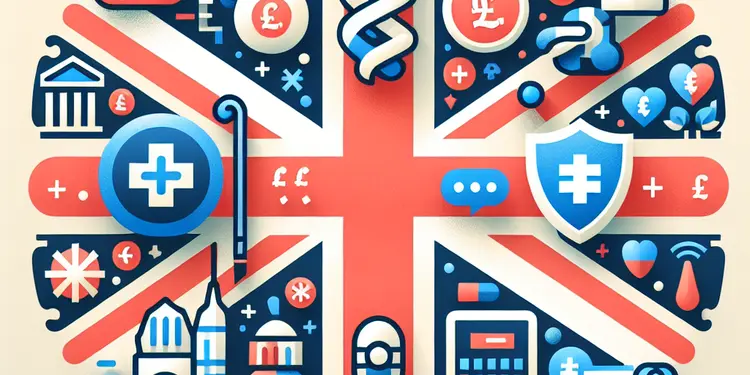
Are there treatments available for Huntington's disease?
Relevance: 33%
-
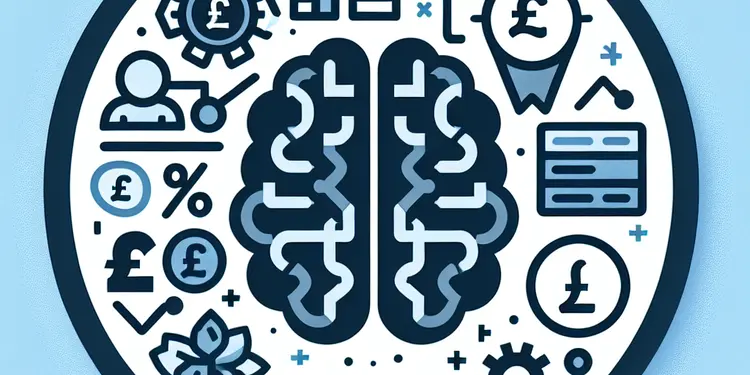
Are there psychological aspects to chronic fatigue syndrome?
Relevance: 32%
-
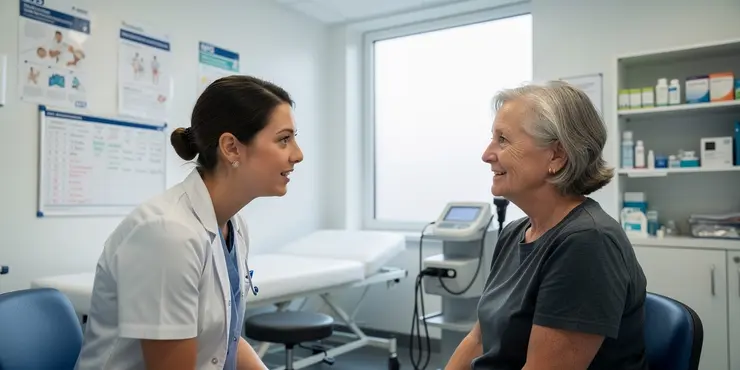
Is there a cure for Crohn's disease?
Relevance: 32%
-
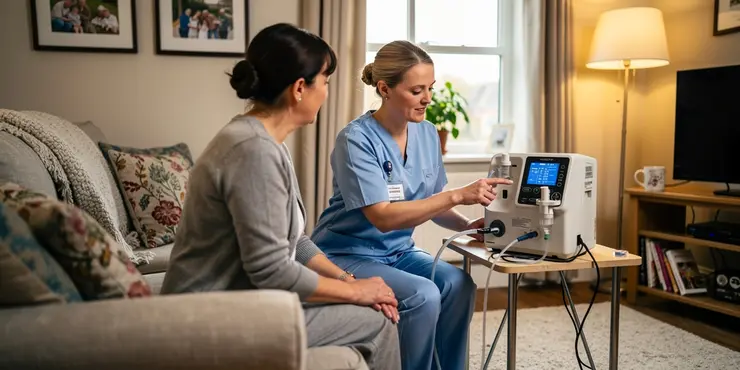
Home dialysis help for kidney patients
Relevance: 31%
-
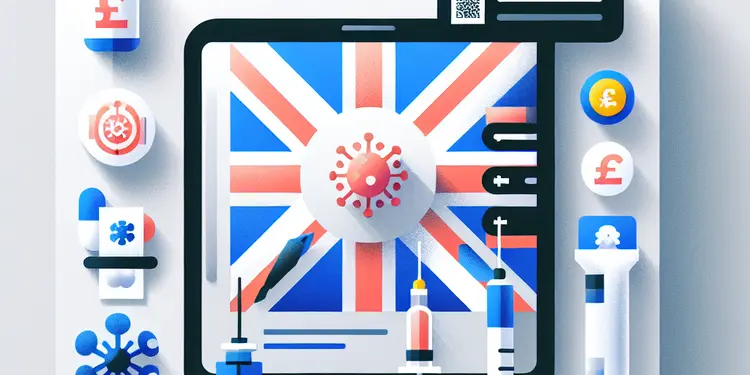
Is flesh-eating disease contagious?
Relevance: 31%
-
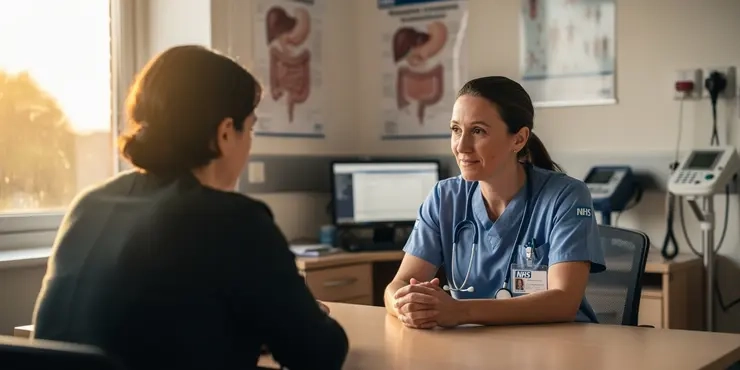
Coeliac disease
Relevance: 31%
-
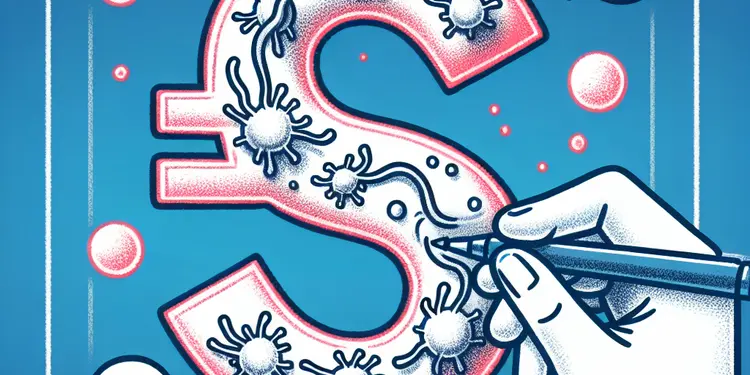
Who is at risk for flesh-eating disease?
Relevance: 31%
-
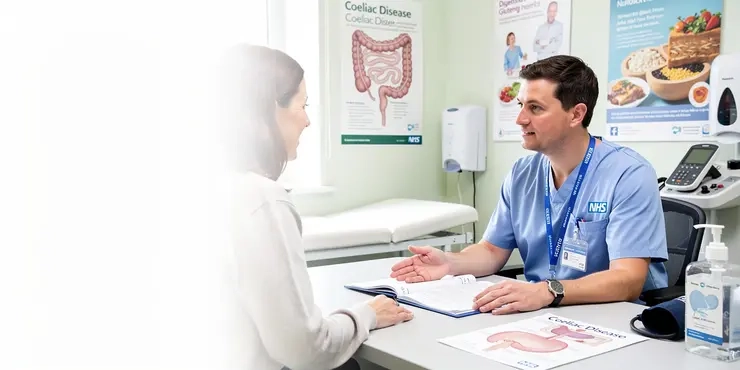
Coeliac Disease: Session 1: What is Coeliac Disease?
Relevance: 31%
-
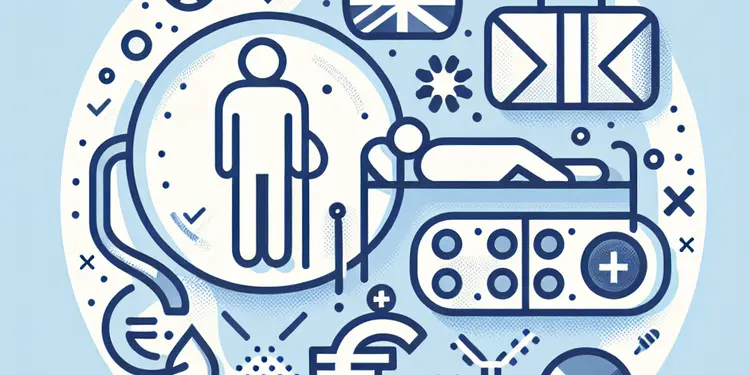
How is chronic fatigue syndrome treated?
Relevance: 31%
-
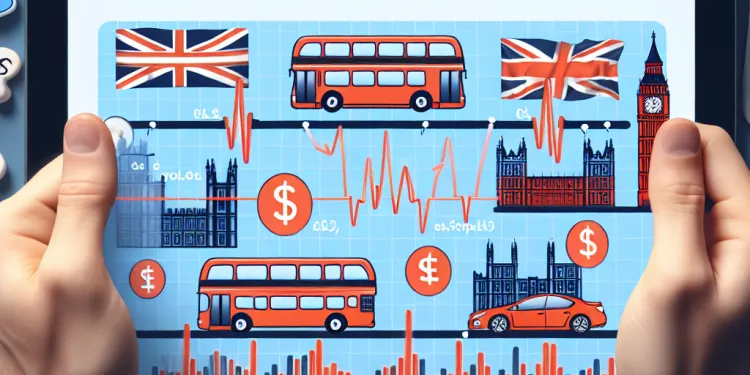
How do cortisol levels differ between acute and chronic stress?
Relevance: 30%
-
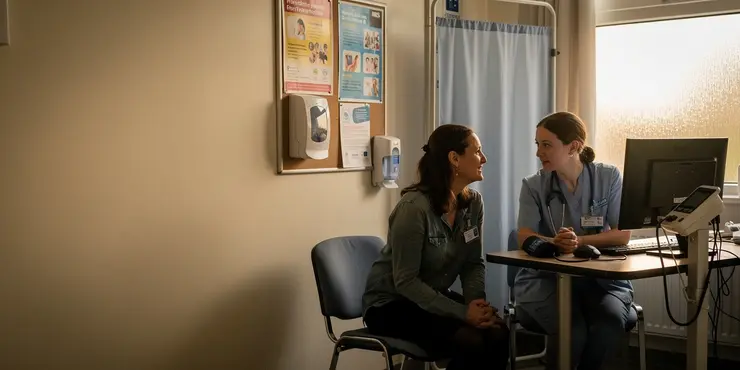
Is Crohn's disease contagious?
Relevance: 30%
-
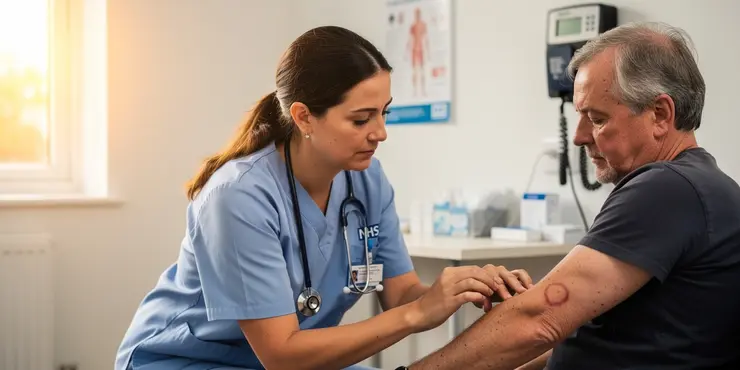
Lyme disease: What is it?
Relevance: 30%
Chronic Kidney Disease: Treatments
Medications
In the United Kingdom, medications are often prescribed to manage symptoms and complications associated with Chronic Kidney Disease (CKD). Common medications include drugs to control blood pressure, reduce protein in the urine, and manage diabetes. Angiotensin-converting enzyme (ACE) inhibitors and angiotensin receptor blockers (ARBs) are commonly used to protect kidney function by lowering blood pressure and reducing strain on the kidneys.
Dietary Changes
Diet plays a crucial role in managing CKD. A diet low in salt, potassium, and phosphorus can help maintain kidney function. The UK's National Health Service (NHS) often recommends a tailored diet plan that includes balanced protein intake, adequate hydration, and avoiding foods high in saturated fats and sugars. Consulting a dietitian specialised in kidney health can provide personalised dietary advice.
Dialysis
For advanced CKD, dialysis might be necessary. Dialysis is a procedure that performs the functions of the kidneys by filtering waste products and excess fluid from the blood. There are two main types of dialysis: haemodialysis and peritoneal dialysis. Haemodialysis involves using a machine and filter to clean the blood, while peritoneal dialysis uses the lining of the abdomen to filter blood inside the body.
Kidney Transplant
A kidney transplant is a surgical procedure wherein a healthy kidney from a donor is transplanted into a patient with severe kidney disease. This can greatly improve the quality of life and longevity for those with end-stage renal disease. The NHS provides access to kidney transplants, with waiting lists managed by transplant centres across the UK. Immunosuppressive medications are prescribed post-transplant to prevent the body from rejecting the new kidney.
Supportive Treatments
Managing CKD involves treating complications and improving quality of life. Alongside primary treatments, patients might require supportive care such as therapies to manage anaemia, high cholesterol, and bone disease. Psychological support and regular monitoring by healthcare professionals help in maintaining overall wellness.
Lifestyle Changes
In addition to medical treatments, lifestyle modifications are important for CKD management. Regular exercise, smoking cessation, and maintaining a healthy weight can help slow the progression of kidney disease. The NHS offers resources and programmes to support patients in making these lifestyle changes.
Chronic Kidney Disease: Treatments and Management
Chronic Kidney Disease (CKD) is a critical health issue that affects an individual's kidney function over time. In the United Kingdom, managing CKD involves various treatments and lifestyle changes to slow progression and maintain quality of life. This article highlights the key treatments available for CKD patients.
Medical Treatments for CKD
Medical intervention is crucial in the management of CKD. Doctors often prescribe medications to control associated conditions such as high blood pressure and diabetes, which can worsen kidney disease. Common medications include:
- ACE Inhibitors and ARBs: These help lower blood pressure and slow kidney damage.
- Diuretics: Also known as water pills, these manage symptoms like swelling by helping remove excess fluid from the body.
- Statins: Used to lower cholesterol levels, reducing cardiovascular risks that are heightened by CKD.
Lifestyle Modifications
Alongside medical treatments, lifestyle changes play a vital part in managing CKD effectively:
- Diet: A kidney-friendly diet is low in sodium, potassium, and phosphorus. Working with a dietitian can help tailor a meal plan.
- Exercise: Regular physical activity helps control weight, lower blood pressure, and improve overall health.
- Smoking Cessation: Quitting smoking is crucial, as smoking can accelerate the progression of CKD.
Advanced CKD Treatments
For advanced CKD stages, patients may require more intensive treatments:
- Dialysis: Dialysis is needed when kidneys fail completely, helping to filter and purify the blood artificially. It can be performed at home or in hospital settings.
- Kidney Transplant: A transplant may be considered the best long-term solution for eligible patients, offering a higher quality of life compared to dialysis. The NHS provides support in finding suitable donor matches.
The Importance of Regular Monitoring
Regular monitoring of kidney function is essential for early detection and intervention. Patients should attend all scheduled appointments with their nephrologist and follow their healthcare team's advice closely. Blood and urine tests are key components in tracking the progression of CKD.
In the UK, the NHS offers comprehensive support for CKD patients, emphasizing the importance of education, awareness, and patient involvement in management plans.
Chronic Kidney Disease: Treatments
Medications
In the UK, doctors give medicine to help people with Chronic Kidney Disease (CKD). This medicine helps with problems like high blood pressure and diabetes. Some medicines help to take care of the kidneys by making the blood pressure lower.
Dietary Changes
Food is very important if you have CKD. Eating less salt, potassium, and phosphorus can help your kidneys work better. The NHS suggests a special food plan. This plan includes eating the right amount of protein, drinking enough water, and not eating too much fatty and sugary food. You can talk to a dietitian to get more help with what to eat.
Dialysis
When CKD is very bad, a treatment called dialysis may help. Dialysis cleans the blood like the kidneys do. There are 2 main types: haemodialysis uses a machine to clean blood, and peritoneal dialysis uses the inside of the belly to clean the blood.
Kidney Transplant
A kidney transplant is an operation where a person gets a healthy kidney from a donor. This can help people feel better and live longer. The NHS helps people get on a list for a new kidney. After the transplant, medicine is needed to stop the body from rejecting it.
Supportive Treatments
People with CKD need extra help to feel better. This can include treatments for anaemia, high cholesterol, and bone problems. Talking to doctors and getting support can help people feel better.
Lifestyle Changes
Changing how you live is important for CKD too. Doing exercise, not smoking, and having a healthy weight help slow down kidney disease. The NHS offers help and programs for people to make these changes.
Chronic Kidney Disease: Treatments and Management
Chronic Kidney Disease (CKD) is a health problem that affects how well kidneys work. In the UK, people with CKD can use treatments and make changes to their lifestyle to help their kidneys and feel better. This article talks about important treatments for people with CKD.
Medical Treatments for CKD
Doctors give medicine to help people with CKD. Medicines can help control problems like high blood pressure and diabetes, which can make kidney problems worse. Common medicines are:
- ACE Inhibitors and ARBs: These medicines lower blood pressure and help protect the kidneys.
- Diuretics: These are water pills that help remove extra fluid from the body and reduce swelling.
- Statins: These help lower cholesterol and reduce the risk of heart problems, which are more common with CKD.
Lifestyle Changes
Changing how you live can also help manage CKD:
- Diet: Eat foods low in salt, potassium, and phosphorus. A dietitian can help plan meals that are good for your kidneys.
- Exercise: Regular exercise helps keep a healthy weight, lowers blood pressure, and keeps you healthy.
- Stop Smoking: Quitting smoking is very important because smoking can make kidney problems worse.
Advanced CKD Treatments
If CKD gets worse, more treatments may be needed:
- Dialysis: Dialysis is needed when kidneys stop working. It cleans the blood and can be done at home or in a hospital.
- Kidney Transplant: A kidney transplant might be the best solution for some people. It can provide a better life than dialysis. The NHS helps find donors for transplants.
The Importance of Regular Monitoring
Checking kidney function regularly is important. This helps find problems early. People with CKD should go to all their doctor's appointments and do what their healthcare team says. Blood and urine tests help track kidney health.
In the UK, the NHS supports people with CKD. This support includes education, awareness, and helping patients be involved in their treatment plans.
Frequently Asked Questions
What are the main treatments for chronic kidney disease (CKD)?
The main treatments for CKD include lifestyle changes, medications, dialysis, and kidney transplant. The specific treatment depends on the stage of the disease and the overall health of the patient.
Can CKD be cured?
Chronic kidney disease cannot be completely cured, but its progression can be managed with proper treatment and lifestyle changes.
What lifestyle changes are recommended for CKD?
It is recommended to maintain a healthy diet, reduce salt intake, exercise regularly, quit smoking, and avoid excessive alcohol consumption.
How does medication help in managing CKD?
Medications can control symptoms and complications of CKD, such as blood pressure, cholesterol levels, and diabetes, which can slow the progression of the disease.
What role does diet play in managing CKD?
A balanced diet low in salt, protein, and potassium helps to reduce the burden on the kidneys and can significantly slow the disease's progression.
What is dialysis and how does it work?
Dialysis is a medical treatment that mimics kidney functions by filtering waste products and excess fluid from the blood. It is used in advanced stages of CKD when kidneys cannot perform this function sufficiently.
What are the different types of dialysis available?
There are two main types of dialysis: haemodialysis, which is performed in hospitals or dialysis centers, and peritoneal dialysis, which can be done at home.
Is kidney transplant a viable option for CKD patients?
For some patients with end-stage kidney disease, a kidney transplant is a viable option that can restore kidney function and improve quality of life.
How are potential kidney donors matched with recipients?
Kidneys are matched based on blood type, tissue type, and other immune system markers. This process helps to ensure compatibility and reduce the risk of rejection.
What regular checks are important for CKD management?
Regular checks of blood pressure, kidney function (creatinine and GFR), and urine tests for protein are important in managing CKD.
Are there any support services available for CKD patients in the UK?
Yes, there are numerous support services available, including NHS resources, local CKD support groups, and organisations like Kidney Care UK.
What are the common symptoms indicating the progression of CKD?
Common symptoms include fatigue, fluid retention, changes in urination, and high blood pressure, though symptoms may not appear until later stages.
How does high blood pressure affect CKD?
High blood pressure can damage kidney blood vessels and is both a cause and a consequence of CKD, creating a cycle that exacerbates the disease.
Why is it important to avoid NSAIDs in CKD?
NSAIDs can reduce blood flow to the kidneys and worsen kidney function, making them generally unsafe for people with CKD.
Can CKD patients still maintain a normal quality of life?
Yes, with proper management, many people with CKD can live full and active lives. Maintaining a healthy lifestyle and adhering to treatment plans are key factors.
What are the main ways to help if you have long-term kidney problems?
The main treatments for CKD (Chronic Kidney Disease) are changes in how you live, taking medicine, dialysis, and getting a new kidney. The right treatment depends on how bad the disease is and how healthy the person is.
Can doctors make CKD go away?
No, CKD cannot go away. But doctors can help you feel better.
Here are some ways to help:
- Eat healthy food.
- Exercise regularly.
- Take your medicine.
- Visit your doctor often.
- Use tools like reminders to take your medicine.
You can't make chronic kidney disease go away completely. But, with the right treatment and changes in how you live, you can help stop it from getting worse.
What changes can help if you have CKD?
Eat healthy food. Eat less salt. Exercise often. Stop smoking. Don't drink too much alcohol.
How does medicine help people with CKD?
CKD means chronic kidney disease. It is a problem with your kidneys.
Medicine can help people with CKD by:
- Keeping blood pressure healthy
- Helping kidneys work better
- Stopping CKD from getting worse
If you have CKD, a doctor will tell you which medicine is best for you.
Tools that can help you remember to take your medicine are:
- A daily pill box
- An alarm or reminder on a phone
- Someone to remind you
Medicines can help with kidney problems. They can keep blood pressure, cholesterol, and diabetes under control. This can slow down kidney problems getting worse.
How does food help take care of kidney problems?
Eating the right foods can help keep your kidneys healthy. Try to eat less salt, protein, and potassium. This will make it easier for your kidneys to work. It can also help stop the disease from getting worse.
What is dialysis and how does it work?
Our bodies have organs called kidneys. Kidneys help clean our blood. Sometimes, kidneys stop working well. When this happens, people need a special machine to help clean their blood. This is called dialysis.
Dialysis is like a washing machine for your blood. It takes out the bad stuff that your kidneys can't remove. It helps keep people healthy when their kidneys are not working right.
Remember, if you have more questions, ask a doctor or nurse. They can explain things in simple words. You can also look at pictures or videos about dialysis to understand better.
Dialysis is a treatment that helps clean your blood. It works like your kidneys when they can't do their job well. It takes out waste and extra water from your body. People need this treatment when their kidneys are very sick and can't clean the blood anymore.
What are the different types of dialysis?
Dialysis is a way to clean the blood when kidneys don't work well.
There are two main types of dialysis:
- Hemodialysis: A machine cleans the blood outside the body. You may go to a clinic or do it at home.
- Peritoneal dialysis: The inside of your belly helps clean the blood. You can do this type at home.
If you have more questions, you can ask a doctor or nurse for help. They are there to help you understand.
There are two main types of dialysis:
1. Haemodialysis: This happens in a hospital or a special clinic.
2. Peritoneal dialysis: You can do this at home.
Tools like picture charts or videos can help understand more.
Can people with kidney problems get a new kidney?
Some people have kidneys that don’t work well. This is called CKD, or Chronic Kidney Disease. Sometimes doctors can give these people a new kidney. This is called a kidney transplant.
If you or someone you know has CKD, talk to a doctor. They can tell you if a kidney transplant might help.
If reading is hard, try using:
- Text-to-speech tools: These read the words aloud for you.
- Audio books: Listen to books instead of reading them.
- Icons or pictures: These help understand the words better.
Some people with very sick kidneys can get a new kidney. This is called a kidney transplant. It can help their kidneys work again and make them feel better.
How do we find a kidney donor for someone in need?
Matching a kidney donor with someone who needs it can be a bit like fitting pieces of a puzzle. Here’s how it works:
- Blood Type Test: First, we check if the donor and the person needing a kidney have the same blood type. This is important for the kidney to work well.
- Tissue Typing: Next, we look at special markers in the blood called antigens. These help make sure the body will accept the new kidney.
- Crossmatch Test: Finally, we mix a little bit of the donor’s blood with the recipient's blood. This check tells us if the body will safely accept the kidney.
Finding the right match helps the new kidney work better and keeps the person healthy. Doctors, nurses, and special computer systems help with the matching process.
Tools like picture guides and simple charts can help understand these steps better. You can also ask someone you trust to explain things to you if you need more help.
Doctors find a kidney that matches by checking blood type, tissue type, and other things in your immune system. This makes sure the new kidney is a good match and helps stop your body from rejecting it.
What regular checks are important for CKD management?
People with CKD (Chronic Kidney Disease) need to check their health often. These checks help them take care of their kidneys.
- Blood Pressure: Check your blood pressure. High blood pressure can hurt your kidneys more.
- Blood Tests: Get blood tests to see how well your kidneys are working.
- Urine Tests: These tests look for protein in your pee. It helps see if your kidneys are having trouble.
- Medicine: Make sure you take your medicine as the doctor says.
If you need help remembering your checks, you can:
- Ask a family member or friend to remind you.
- Use a phone or calendar to keep track of your appointments.
It is important to check your blood pressure. You also need to check how well your kidneys are working. This includes tests for creatinine and GFR. Doing urine tests can show if there is protein in your pee. These checks can help manage kidney problems.
Can people with CKD in the UK get help?
Yes, people with CKD in the UK can get support. Here are some ways to get help:
- Talk to your doctor: Your doctor can give you information and advice.
- Kidney organizations: Groups like the National Kidney Foundation can help.
- Support groups: Join a group to meet others with CKD.
- Online help: Look for websites that talk about CKD.
If you need more help, ask a friend or family member to help you find these services.
Yes, there are many places that can help. You can get help from NHS services. There are also groups near you for people with CKD. Kidney Care UK is another place that can help.
What are the common signs that kidney disease is getting worse?
Here are some signs that kidney problems might be getting worse:
- Feeling really tired
- Feeling sick or throwing up
- Swollen feet or ankles
- Trouble sleeping
- Peeing less than usual
- Feeling itchy
If you notice these signs, talk to a doctor. They can help.
Using pictures or videos can help you understand better. A family member or friend can also help explain these things to you.
Here are common signs:
- Feeling very tired.
- Keeping too much water in your body.
- Peeing less or more than usual.
- Having high blood pressure.
These signs might not show up until the problem is worse.
If you're worried, talking to a doctor can help.
How does high blood pressure affect CKD?
Do you know anyone with high blood pressure? High blood pressure means your blood moves through your body with too much force. This can harm your body over time.
High blood pressure can hurt your kidneys. Your kidneys clean the waste from your blood. When they are not healthy, we call it CKD or Chronic Kidney Disease. C stands for “chronic” meaning it lasts a long time.
If you have high blood pressure for a long time, it can make CKD worse. It is important to check your blood pressure.
Ask your doctor about ways to lower your blood pressure. You can also eat healthy food and exercise to help.
Using a blood pressure monitor at home can be a good idea. Also, your family or friends can help you remember to take your medicine.
High blood pressure can hurt the blood vessels in your kidneys. It can lead to kidney disease and also get worse because of the disease. This creates a harmful cycle that makes the illness worse.
Why should people with CKD not take NSAIDs?
If you have CKD (kidney problems), don't take NSAIDs (a type of medicine).
NSAIDs can hurt your kidneys more.
Ask a doctor or a nurse about safe medicine to use instead.
Use tools like a medicine reminder app to help you remember what to take.
Pain medicine like NSAIDs can make it hard for your kidneys to work well. This is bad for people with kidney problems.
Can people with CKD live a normal life?
People with CKD can often live a good life. It helps to:
- See a doctor regularly.
- Take any medicines the doctor gives them.
- Eat healthy food.
- Exercise a little every day.
Talking to someone can also help, like family or a friend. There are support groups too. These can be online or in person.
Yes, many people with CKD can live happy and active lives if they take care of themselves. Eating healthy and following the doctor’s advice are very important.
Useful Links
This website offers general information and is not a substitute for professional advice.
Always seek guidance from qualified professionals.
If you have any medical concerns or need urgent help, contact a healthcare professional or emergency services immediately.
Some of this content was generated with AI assistance. We’ve done our best to keep it accurate, helpful, and human-friendly.
- Ergsy carfully checks the information in the videos we provide here.
- Videos shown by Youtube after a video has completed, have NOT been reviewed by ERGSY.
- To view, click the arrow in centre of video.
- Most of the videos you find here will have subtitles and/or closed captions available.
- You may need to turn these on, and choose your preferred language.
- Go to the video you'd like to watch.
- If closed captions (CC) are available, settings will be visible on the bottom right of the video player.
- To turn on Captions, click settings .
- To turn off Captions, click settings again.
More Items From Ergsy search
-

Chronic kidney disease: What are the treatments?
Relevance: 100%
-

What causes chronic kidney disease?
Relevance: 89%
-

NHSGGC - Diet and Chronic Kidney Disease (CKD)
Relevance: 77%
-

What is my risk of kidney failure with CKD (chronic kidney disease) | UHL NHS Trust
Relevance: 76%
-

What should I eat to help with chronic kidney disease?
Relevance: 76%
-

Living with early stage kidney disease
Relevance: 66%
-

Does Ozempic have an impact on kidney function?
Relevance: 48%
-

Is there a link between seed oils and chronic diseases?
Relevance: 47%
-

Having a kidney transplant
Relevance: 45%
-

What are kidney stones?
Relevance: 44%
-

Matthew's Story: Kidney Transplant - Part 1
Relevance: 44%
-

Patient Stories - Having a kidney transplant
Relevance: 43%
-

What treatments are available for Crohn's disease?
Relevance: 43%
-

Can flesh-eating disease recur after treatment?
Relevance: 41%
-

What are the complications of sickle cell disease?
Relevance: 40%
-

Kidney transplant waiting stories – DJ Ace and Lauren | NHS Organ Donation
Relevance: 39%
-

What treatments are available for Alzheimer's disease?
Relevance: 38%
-

Is chronic fatigue syndrome contagious?
Relevance: 37%
-

What treatments are available for motor neurone disease?
Relevance: 37%
-

Managing Chronic Illness Within the Family
Relevance: 37%
-

Are there any complications associated with Crohn's disease?
Relevance: 36%
-

What is chronic fatigue syndrome?
Relevance: 35%
-

What role do chronic conditions play in driving risks for seniors?
Relevance: 35%
-

What role do infections play in chronic fatigue syndrome?
Relevance: 34%
-

Is chronic fatigue syndrome a mental illness?
Relevance: 34%
-

What causes chronic fatigue syndrome?
Relevance: 34%
-

Liver disease | NHS
Relevance: 34%
-

What happens if Lyme disease is left untreated?
Relevance: 34%
-

Are there treatments available for Huntington's disease?
Relevance: 33%
-

Are there psychological aspects to chronic fatigue syndrome?
Relevance: 32%
-

Is there a cure for Crohn's disease?
Relevance: 32%
-

Home dialysis help for kidney patients
Relevance: 31%
-

Is flesh-eating disease contagious?
Relevance: 31%
-

Coeliac disease
Relevance: 31%
-

Who is at risk for flesh-eating disease?
Relevance: 31%
-

Coeliac Disease: Session 1: What is Coeliac Disease?
Relevance: 31%
-

How is chronic fatigue syndrome treated?
Relevance: 31%
-

How do cortisol levels differ between acute and chronic stress?
Relevance: 30%
-

Is Crohn's disease contagious?
Relevance: 30%
-

Lyme disease: What is it?
Relevance: 30%


